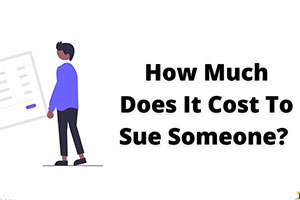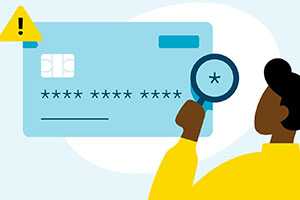Is a DUI a Felony? Understanding Legal Consequences
Criminal Law | by
Driving under the influence (DUI), also known as driving while intoxicated (DWI), involves operating a motor vehicle with a blood alcohol concentration (BAC) at or above a set limit, typically 0.08% for drivers over 21 years old in most jurisdictions in the United States. The legal BAC threshold can be lower for commercial drivers and individuals under the legal drinking age of 21. DUI laws aim to reduce traffic accidents and fatalities caused by impaired driving. Under these laws, DUI charges are typically initiated following a traffic stop where evidence of impairment, such as field sobriety tests and breathalyzer or blood tests, indicates that the driver is under the influence of alcohol or drugs.
When is a DUI Considered a Felony?
A DUI is most commonly classified as a misdemeanor but can escalate to a felony under certain conditions, which vary significantly across different states. Common factors elevating a DUI to felony status include:
- Multiple DUI Offenses: Repeat offenders may face felony charges if they accumulate several DUI convictions within a certain timeframe, which suggests habitual violation of these laws.
- High Blood Alcohol Concentration: Extremely high BAC levels, significantly above the legal limit, may result in a felony charge due to the increased risk and recklessness involved.
- Involvement in an Accident Causing Injury or Death: If a DUI results in an accident where someone is seriously injured or killed, the charge is likely to be elevated to a felony. This reflects the serious consequences of the driver’s actions.
- Presence of a Minor in the Vehicle: Driving under the influence with a minor in the vehicle can also escalate a DUI to a felony, as it poses a significant risk to the safety of young passengers.
These criteria are intended to punish and deter particularly dangerous behaviors associated with impaired driving.
State-Specific DUI Laws
DUI laws in the United States vary from state to state, reflecting differing approaches to handling impaired driving. For example:
- California: In California, a DUI can become a felony if the driver has three or more prior DUI convictions within ten years or if the incident results in injury to another person. California Vehicle Code § 23550 outlines the provisions for repeat offenders, while § 23153 covers DUI causing injury.
- Texas: Texas categorizes a DUI as a felony if the driver has a previous intoxicated manslaughter conviction, causes serious bodily injury during the incident (intoxicated assault), or is arrested with a child passenger under 15 years old, as per Texas Penal Code § 49.04 and § 49.09.
- Florida: In Florida, a third DUI within 10 years or a fourth DUI regardless of timing is treated as a felony, according to Florida Statutes § 316.193.
Each state’s DUI laws specify the thresholds and penalties for misdemeanor and felony DUI charges, tailored to local policy goals and legal frameworks. These laws are enforced with the aim of reducing the prevalence and severity of alcohol-related incidents on the roads.
Consequences of a Felony DUI Conviction
A felony DUI conviction carries significantly harsher penalties than a misdemeanor due to its serious nature and the greater risk it poses to public safety. The specific consequences of a felony DUI can vary widely by state, but generally include:
- Incarceration: Felony DUI convictions almost invariably result in jail time. Sentences can range from one year in a state prison to longer terms, depending on the severity of the offense and prior convictions.
- Fines: Monetary penalties for felony DUI are typically substantial, potentially amounting to thousands of dollars. These are intended both as a punishment and a deterrent against future DUI offenses.
- License Suspension or Revocation: Individuals convicted of felony DUI often face long-term suspension or permanent revocation of their driving privileges.
- Ignition Interlock Devices: Many states require the installation of ignition interlock devices on vehicles operated by persons convicted of DUI. These devices prevent the vehicle from starting if alcohol is detected in the driver’s breath.
- Probation: Probation is a common component of sentencing for felony DUIs, often accompanied by specific conditions such as alcohol education classes, community service, or regular drug and alcohol testing.
- Impact on Employment and Professional Licensing: A felony conviction can severely impact one’s career, particularly for those in professions that require licensing or security clearances.
- Additional Consequences: Other potential ramifications include increased insurance rates, travel restrictions, and social stigma.
Legal Defenses Against Felony DUI Charges
Defending against a felony DUI charge involves several potential strategies, which may vary based on the specifics of the case and the evidence available. Common defenses include:
- Questioning the Legality of the Traffic Stop: Defense attorneys often scrutinize whether the initial traffic stop was lawful under the Fourth Amendment, which protects against unreasonable searches and seizures.
- Challenging the Accuracy of Blood Alcohol Content (BAC) Testing: The reliability of breathalyzer or blood tests can be contested, particularly if there were issues with the testing procedure or the calibration and maintenance of the testing equipment.
- Rising Blood Alcohol Concentration: Defense may argue that the defendant’s BAC was below the legal limit while driving but rose to an illegal level by the time testing occurred.
- Procedural and Rights Violations: Any failure in following legal procedures or in respecting the rights of the accused, such as the failure to administer Miranda warnings, can be grounds for challenging the charge.
- Necessity: Rarely, the defense of necessity may be invoked if the defendant can prove that they drove under duress or in an emergency situation to avoid greater harm.
Preventing DUI Charges
Preventing DUI charges is fundamentally about awareness and responsible behavior. Strategies include:
- Planning Ahead: Always planning for transportation if alcohol consumption is anticipated. Utilizing rideshare services, taxis, or designated drivers can prevent the need to drive after drinking.
- Understanding BAC Levels: Being aware of how alcohol affects one’s BAC and the time it takes for alcohol to metabolize can help individuals avoid unintentional impairment.
- Educational Programs: Participating in educational programs that highlight the dangers of drunk driving and the legal consequences associated with DUI charges.
- Community Initiatives: Communities might also implement programs that provide free or discounted rides on holidays known for higher drinking rates, reducing the likelihood of DUI incidents.
- Zero Tolerance for Underage Drinking: Strict enforcement of zero-tolerance laws for underage drinkers can prevent habits that might lead to DUI charges later in life.
By adopting these preventive measures, individuals can significantly reduce their risk of being charged with a DUI, thus avoiding the severe consequences that accompany such charges.
References
- Cornell Law School – Legal Information Institute (LII): Provides a thorough overview of federal statutes and decisions that shape DUI law, as well as links to state-specific legal resources.
- National Conference of State Legislatures (NCSL): Offers detailed information on DUI laws across different states, including variations in BAC limits, penalties, and other relevant legal measures.
- Justia U.S. Supreme Court: Features significant court rulings that have influenced the interpretation and enforcement of DUI laws, including landmark cases like Gideon v. Wainwright.
- California DMV: Offers specifics on California’s DUI laws, penalties, and preventive measures.
- Texas Department of Transportation: Provides details on Texas DUI statutes and educational material on safe driving.










